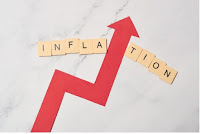Should We Buy Gold or Not?
A Comprehensive Analysis

Introduction:
When it comes to investing, one question that often arises : whether should we buy gold or not? Gold has always been considered a safe haven asset, but does it still hold its value in today’s ever-changing financial landscape? Whether buying gold is a wise choice?
In this blog post, I’ll delve into the pros and cons of investing in gold, exploring both historical and current factors to help you make an informed decision.
1. Understanding the Historical Significance of Gold:

Gold has been a valuable asset for centuries, recognized for its beauty, scarcity, and ability to preserve wealth. Throughout history, gold has served as a medium of exchange, a store of value, and a hedge against inflation. For example, during times of economic uncertainty or political turmoil, investors often flock to gold as a safe haven, driving up its price.
However, it’s important to note that gold’s value has fluctuated over time. While it has generally appreciated in the long run, there have been periods of significant price declines. Therefore, it is crucial to consider various factors before making a decision of should we buy Gold or not.
2. Gold as a Diversification Tool:
One of the primary reasons investors consider gold is its potential to diversify their portfolios. Gold often exhibits a low correlation with other asset classes like stocks and bonds. During times of market volatility, gold can act as a buffer, potentially reducing overall portfolio risk. By adding a certain percentage of gold to a diversified portfolio, investors may mitigate losses during economic downturns.

It is important to note that diversification does not guarantee profits or protect against all losses. Careful analysis of individual financial goals and risk tolerance is crucial before making a decision of should we buy Gold or not and before incorporating gold into an investment strategy.
3. Inflation Hedge and Currency Devaluation:

Indians have always had less faith in government promises than in gold for a simple reason: gold has proved its mettle over time. It is a good hedge against inflation and economic uncertainty over the longer term, even if short-term prices fluctuate adversely.
As of a few months ago, Indians had bought more than 100 tonnes of paper gold, including gold exchange traded funds and sovereign gold bonds (SGBs).
Gold is often seen as a hedge against inflation and currency devaluation. In times of rising prices and weakening currencies, the value of gold tends to rise. This is because gold is considered a tangible asset whose worth cannot be eroded easily.
For example, during the economic downturn caused by the COVID-19 pandemic, central banks around the world implemented massive monetary stimulus measures. This increased the risk of inflation and currency devaluation. As a result, the price of gold surged, reaching all-time highs.
4. Market Volatility and Safe Haven Status:
Gold has a long-standing reputation as a safe haven asset. During times of economic uncertainty, such as geopolitical tensions or stock market crashes, investors often seek refuge in gold. This demand drives up its price, as investors perceive it as a store of value and a hedge against market volatility.

Data with goldprice.org shows that gold has delivered positive returns in 12 of the last 15 years in rupee terms, with positive returns in other currencies, too. The US dollar may or may not remain a safe haven, but gold has always remained one.
Over 15 years, gold has delivered 11 per cent annual average returns in rupee terms, which is more than one can say about safe government bonds or fixed deposits.
However, it is essential to recognize that gold’s safe haven status is not absolute. In recent years, the emergence of new safe haven assets, such as cryptocurrencies, has altered the investment landscape. While gold retains its appeal, it faces competition from these emerging alternatives.
5. Potential Downsides of Investing in Gold:

While gold has its merits, it is crucial to consider the potential downsides before committing to an investment. Some factors to consider , before making a decision of should we buy Gold or not, include:
(a) Lack of Yield:
Unlike stocks or bonds, gold does not generate income in the form of dividends or interest. Its value relies solely on price appreciation.
(b) Storage and Insurance Costs:
Owning physical gold requires storage and security, which can incur additional expenses.
(c) Market Volatility:
Gold prices can be subject to significant short-term fluctuations, which may cause emotional stress for some investors.
Conclusion:
The decision of whether to buy gold or not ultimately depends on your individual financial goals, risk tolerance, and market outlook. While gold has proven its worth over time, it is not a guaranteed path to financial success. As with any investment, careful research and analysis are vital.
If you seek diversification, a hedge against inflation, or a safe haven during uncertain times, gold may have a place in your investment strategy. However, it should be approached as part of a well-rounded portfolio, considering other asset classes and individual circumstances.
By understanding the historical significance, evaluating its role as a diversification tool, considering inflation hedge and currency devaluation, and acknowledging both the potential benefits and downsides, you can make an informed decision before making a decision of should we buy Gold or not and whether buying gold is the right choice for you.

Remember, investing in gold should not be driven solely by short-term market trends. Instead, take a long-term perspective and consult with a financial advisor to ensure your investment decisions align with your overall financial goals.
